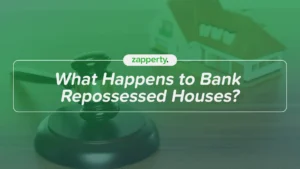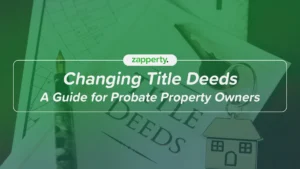Can a quick sale give you the freedom to maximise your options – or could you get bogged down in fees, tax and regulation?
The UK housing market has experienced some fluctuations in recent years – mainly due to factors such as interest rates, economic conditions, and changing government policies. While the market has shown resilience, there are regional variations and uncertainties – house prices have seen growth in some regions but have stabilised or declined in others.
The overall market is expected to remain competitive. The time it takes to sell a house after buying it, can vary depending on factors like location, pricing, and market conditions.
Demand remains strong in most areas, driven by factors like population growth and limited supply. However, concerns about affordability persist, particularly in major cities, leading some buyers to consider more rural or commuter locations.
Why sell a house after buying it so soon?
The volatility in the housing market is matched in part by growing volatility in the jobs market. This is one of the most common reasons for people to sell quickly. As well as job relocation, other factors include changing personal and financial circumstances, especially if a quick resale could be financially advantageous. If you’re selling under such conditions, understanding the role of a Memorandum of Sale is crucial in ensuring a smooth transaction
But, people often have questions about the implications of selling a house shortly after purchase.
Here are Four Frequently Asked Questions about selling soon after purchase…
1. Is it legal to sell a property as soon as you’ve bought it?
Yes.
While there’s no specific law prohibiting the sale of a house shortly after purchase, there are other things to consider.
Most mortgages have a ‘repayment period’ or ‘early repayment’ clause. So if you sell within a certain period (usually 2-5 years), you may be subject to a penalty fee.
Importantly, you cannot resell a property until the sale has completed in your name. The completion stage is the final step in the house-buying process, where ownership is transferred from the seller to you – the buyer.
There are some key stages:
- Exchange of contracts: The buyer and seller exchange signed contracts, making the agreement legally binding.
- Payment of the purchase price: The buyer pays the agreed-upon price to the seller’s solicitor.
- Transfer of title: The property title is officially transferred from the seller to the buyer.
Once completion is complete, you becomes the legal owner of the property – and that’s the earliest you can legally sell.
2. Will I pay more tax if I sell a property early?
Possibly!
The specific tax implications depend on several factors – including timing and type of tax.
Stamp Duty Land Tax (SDLT)
If you sell a property within a certain period (usually 2 years) after purchasing it as your main residence, you may be exempt from SDLT on the profit. However, if you sell it sooner, you may be liable for SDLT
Capital Gains Tax (CGT)
This is a tax on the profit made from selling a property. If you sell a property within a certain period (usually 2 years) after purchasing it as your main residence, you may be exempt from CGT on the profit. However, if you sell it sooner, you may be liable for CGT.
3. Does it affect getting a mortgage if I intend to sell soon after purchase?
It can…
If you plan to sell a property soon after purchasing it, lenders may be less likely to approve your mortgage application. Here’s why:
- Risk Assessment: Lenders assess the risk of default when granting mortgages. Selling a property early can indicate financial instability or a change in circumstances that may increase the risk of default.
- Valuation Concerns: If you sell a property soon after purchase, lenders may be concerned about its valuation and whether it has appreciated sufficiently to cover the mortgage and any potential losses.
- Mortgage Terms: Some mortgage lenders may have specific terms or restrictions regarding the sale of a property within a certain period after purchase.
It’s important to be totally transparent with your lender about your intentions to sell the property early. Then they can assess your situation and determine if you’re still eligible for a mortgage.
4. How easy is it to sell my house soon after purchase?
It depends on the market, among other things.
Reselling a property you’ve just bought depends on several factors, including:
- Current market conditions: If the housing market is hot, you may be able to sell quickly and potentially at a profit. However, if the market is slow, it could take longer to find a buyer.
- Your location: Properties in desirable locations tend to sell more quickly and for higher prices.
- The condition of your property: A well-maintained property with desirable features is more likely to attract buyers.
- Timing: Selling a property soon after purchase may be more challenging due to factors like stamp duty implications and potential disruption to the property chain.
- Legal and financial considerations: There may be legal and financial implications associated with selling a property soon after purchase, such as early repayment charges on mortgages or capital gains tax.
If you are thinking about selling your home privately it’s important to understand the steps involved to ensure a smooth and successful sale. While it’s always possible to resell a property soon after purchase, it’s important to consider these factors and consult with a real estate agent or financial advisor to assess your specific situation and determine the best course of action.
When is the Right Time to Sell Your House?
Selling your home isn’t just about deciding you’re ready to move on—it’s about making sure the market is ready too. The right timing can mean the difference between making a solid profit and losing out on potential earnings. But how do you know if it’s the right time to sell, especially if you’re considering an early sale?
Understanding Market Conditions: Why Timing Matters
Imagine putting your house on the market at the wrong time—buyers are hesitant, competition is high, and you’re forced to lower your listing price just to get an offer. That’s a scenario every seller wants to avoid.
The UK real estate market fluctuates due to factors like interest rates, demand, and economic stability. For example, if mortgage rates are high, buyers may be reluctant to commit, leading to slower sales and lower prices. On the flip side, in a seller’s market—where demand outweighs supply—you could get multiple offers, allowing you to sell faster and for a better price.
So, what’s the key takeaway? Timing your sale strategically can significantly impact how much money you walk away with.
Thinking about buying a house you’re currently renting? Here’s how to do it: How to Buy a House You Are Renting
The Power of Comparative Market Analysis (CMA)
One of the best ways to determine if it’s a good time to sell is by conducting a Comparative Market Analysis (CMA). This is when you look at recently sold comparable properties in your area to gauge your home’s value.
Think of it like this—if three similar homes in your neighbourhood sold within the last three months for £250,000, £255,000, and £258,000, you have a solid indication of your home’s potential value. But if homes are sitting unsold for months or selling for less than expected, it might be worth waiting until conditions improve.
A CMA also helps you avoid overpricing, which can turn buyers away, or underpricing, which could mean losing out on potential profit.
Strategic Timing: Selling at the Right Moment
Knowing when to sell can make a huge financial difference. Here’s what you need to consider:
1. The ‘Break-Even’ Point.
Selling too soon could mean losing money. Between closing costs, estate agent fees, and potential capital gains taxes, you’ll want to calculate whether your home has built up enough equity to justify a sale. If your property hasn’t appreciated enough to cover these costs, waiting might be the better option.
2. Seasonal Trends
Did you know homes tend to sell faster and for higher prices in spring and early summer? More buyers are actively looking, making it easier to get a good offer. On the flip side, winter months (especially around Christmas) can be tougher, as buyers are often distracted or waiting for the new year to make big financial moves.
3. Your Personal and Financial Situation
- Are you relocating for work and need a quick sale?
- Is an increase in interest rates making your mortgage payments unmanageable?
- Have your circumstances changed, making your home less suitable?
4. Market Trends
Pay attention to housing market reports. Are home values rising? Are buyers actively looking?
What If the Market Conditions Aren’t Ideal?
If the market isn’t favourable, but you still need to sell, consider alternative solutions. One option is selling to a cash buyer like Zapperty, which allows you to bypass the traditional selling process, avoid realtor commissions, and close faster without being at the mercy of market fluctuations. Find out more about how we can help you here.
Wondering how much estate agents charge? Learn more here: What Percentage Do Estate Agents Charge?
Conclusion
Sometimes it is advantageous to sell straight after you buy – but as you can see there are a host of complex conditions that can impact this kind of sale. There could be added costs and tax implications, and the market may not be as responsive or as buoyant as you’d want. One of the best ways to mitigate these issues is to look for a cash buyer.
Cash house buyers – like Zapperty – can make you an offer straight away, so you get the benefit of selling your house fast, without many of the fees and charges that come with traditional estate agency. With Zapperty you could be getting your hands of the money in just seven days – leaving you free to move quickly, with complete confidence.
FAQS
Still unsure if now is the right time to sell? Here are answers to some common questions:
How long can you have a house before selling?
You can sell at any time, but to maximise profit, we recommend waiting at least 2-5 years to build equity.
How soon can you sell a buy-to-let property?
There’s no set limit, but if you sell too soon, you might face higher taxes and penalties.
What happens if I sell my house for more than I bought it?
You might be subject to capital gains taxes, depending on your profit and how long you’ve owned the property.
What is the 36-month rule?
This rule applies to capital gains tax relief—it allows you to avoid tax on a property if it was your main residence for at least 36 months before selling.
Can I sell my property within six months of buying it?
Yes, but some mortgage lenders have restrictions, and you could face early repayment charges.
How long do you have to live in a property to avoid capital gains tax?
Typically, you need to live in a home for at least two years before selling to qualify for exemptions.
Can you buy a house while waiting for yours to sell?
Yes, but it can be risky. Many buyers use bridge loans or cash offers to secure a new home before selling their old one.




